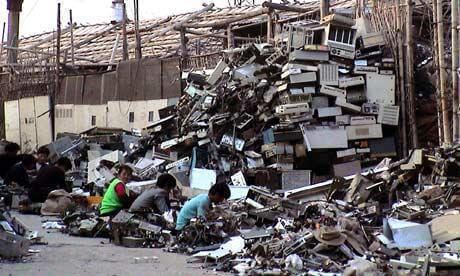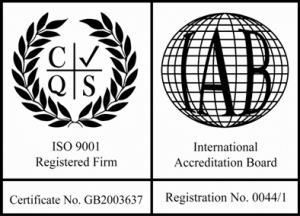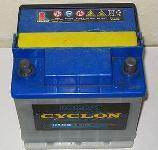
Reusing a computer is twenty times better for the environment than recycling according to a recent UN study.
Here at Recycling Your IT, we spend a lot of time educating corporations that there is an alternative to recycling. Approximately 63% of all IT equipment we collect is reused, either in Europe, the USA or developing nations. We also take great care to ensure that child labour is not used or environmentally disastrous steps are not taken when we’re dealing with developing nations.
Technology advances weekly and being so affordable can be easily upgraded. Therefore, the useful life of a lot of ICT equipment, for its first user, is very short. This doesn’t however mean that the equipment is useless.
The average PC we receive at our facility is an Intel Pentium 3.0Ghz. With a little loving care and the odd upgrade, this can be more than enough for the average user. Already we are starting to see dual core and quad core systems coming in for recycling. Most only have minor faults that can be rectified fairly easily. After all previous is destroyed, these machines can be easily reused.
So the next time, think about facilitating reuse rather than recycling.
Plymouth Council Fined £12,000 for WEEE Breach

Local amenity sites dumping electrical goods and breaching the WEEE directive have cost Plymouth council £11742 in fines and legal costs.
Plymouth Magistrates handed the fine to the council after they had been caught selling electrical waste to unauthorised recyclers.
In January 2009, the Environmental Agency visited a recycling firm in Plymouth after being tipped off. It found a large amount of electrical waste left in the open, which under the WEEE directive is not allowed. According to the WEEE directive, all electrical and electronic waste has to be kept safe and sent to authorised treatment facilities. Also, the correct paper work needs to be completed. When the EA asked to see the transfer notes from the amenity site, the site operator didn’t even know what a transfer note was!

The EA are also investigating the alleged illegal export of WEEE waste to Ghana.
If you’re not sure about WEEE directives or are wondering about whether you have all the necessary paperwork, call a licensed and responsible recycling company like Recycling your IT without any further delay!
Lead Acid Battery: Environmental Success
 Lead-acid batteries are an environmental success story as more than 97 percent of all battery lead is recycled! Compared to 55% of aluminium soft drink and beer cans, 45% of newspapers, 26% of glass bottles and 26% of tires, lead-acid batteries top the list of the most recycled consumer product.
Lead-acid batteries are an environmental success story as more than 97 percent of all battery lead is recycled! Compared to 55% of aluminium soft drink and beer cans, 45% of newspapers, 26% of glass bottles and 26% of tires, lead-acid batteries top the list of the most recycled consumer product.
The lead-acid battery gains its environmental edge from its closed-loop life cycle. The typical new lead-acid battery contains 60 to 80 percent recycled lead and plastic. When a spent battery is collected, it is sent to a permitted recycle where, under strict environmental regulations, the lead and plastic are reclaimed and sent to a new battery manufacturer. The recycling cycle goes on indefinitely. That means the lead and plastic in the lead-acid battery in your car, truck, boat, UPS or motorcycle have been – and will continue to be – recycled many, many times. This makes lead-acid battery disposal extremely successful from both environmental and cost perspectives.
Each battery contains about 20lbs of lead, 1 gallon of Sulphuric Acid and 2lbs of plastics. The unique properties of lead makes repeated recycling fairly easy. Lead batteries are taken to a special treatment facility where they are all crushed. Everything apart from Uranium floats on lead. The Sulphuric Acid and plastics are easily separated. Then, the lead is heated in furnaces to remove any impurities and again because everything floats on the top of lead, these are also easily removed. The resulting molten liquid is then cast in blocks and sent back to battery manufactures to make new batteries. This process can be done time and time again; making Lead-Acid batteries an environmental success.
Think before you throw that Kettle Away!
Modern electronic devices might look nice and clean on the outside. However, they could be manufactured from or contain lots of materials which are potentially very dangerous and hazardous to human health. The most common ones are PVC plastic used as insulator for internal cabling, and brominated flame retardants which are known to be carcinogenic.
Most of these substances can be disposed of safely, but it needs considerable investment and therefore most recycling companies tend to turn a blind eye to where these items end up. Often, most of these substances are simply shipped as eWaste abroad to developing countries; where, instead of being properly processed, appliances are simply dumped in unmanaged landfill. This leads to toxins being released into the soil and eventually into the water table. Apart from the obvious environmental impact, shipping e-waste to developing countries has a human impact as well. Using child labour to extract the precious metals in extremely hazardous conditions is a common practice.
If you are concerned about our environment and about where your electrical goods might end up, please make sure you use only reputable recyclers.
As a responsible company, we make sure that our recycling solution is as environmentally friendly as possible. We refurbish and make a huge chunk of the items we receive reusable as this is obviously the best result for the environment. Some items do not have a re-use value in the UK but work and can still be used in developing nations. This equates to about 20% of what we receive. We only ship to suppliers of reputation who we have been dealing with for years. Finally if the item is only scrap, we break it down into individual materials and sent each to specialist recyclers where they are melted down and re-used to build new devices.
| Call us today on 01279 215000 to find out how we can help you dispose of your IT equipment in a socially responsible way. |
